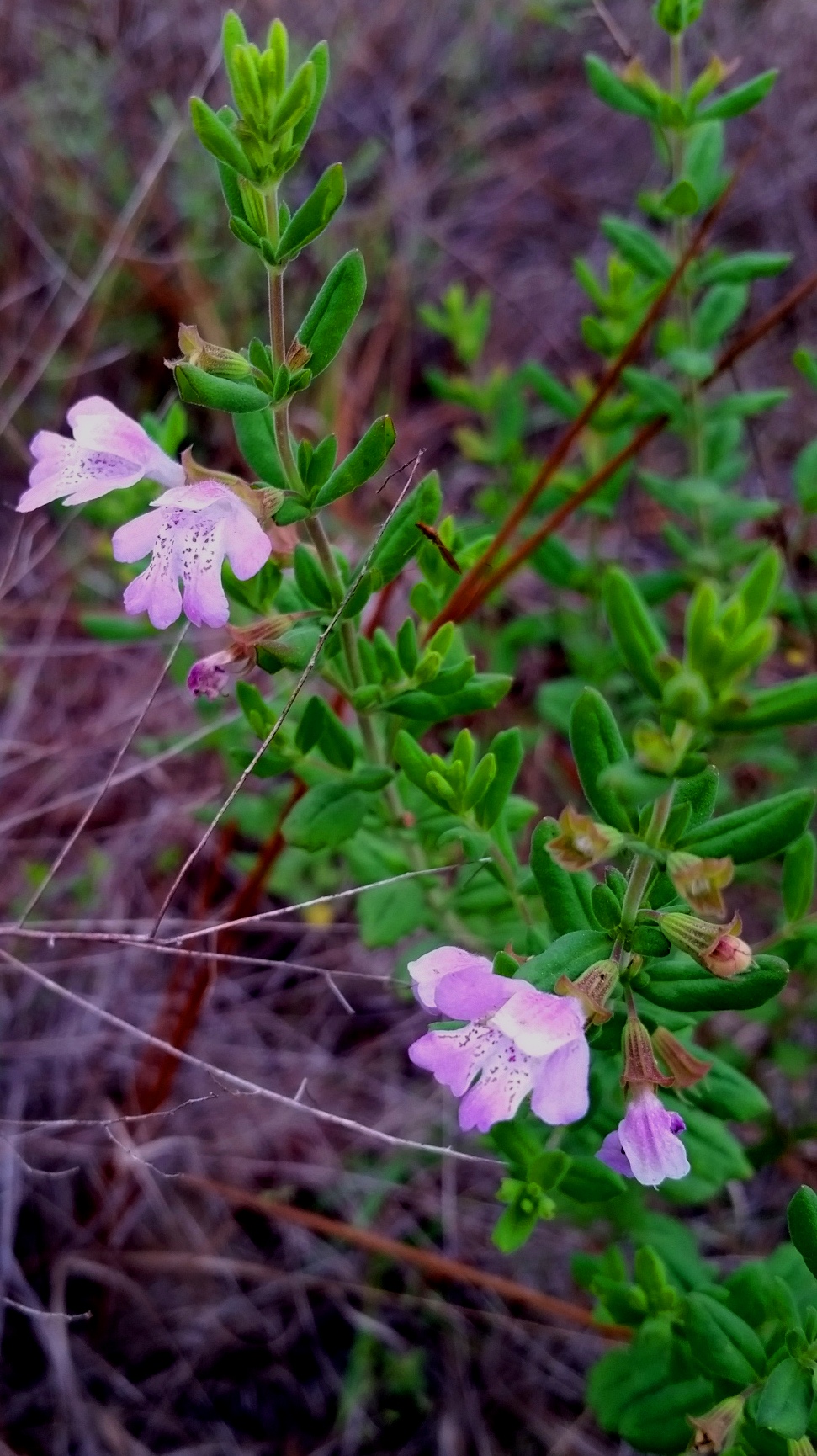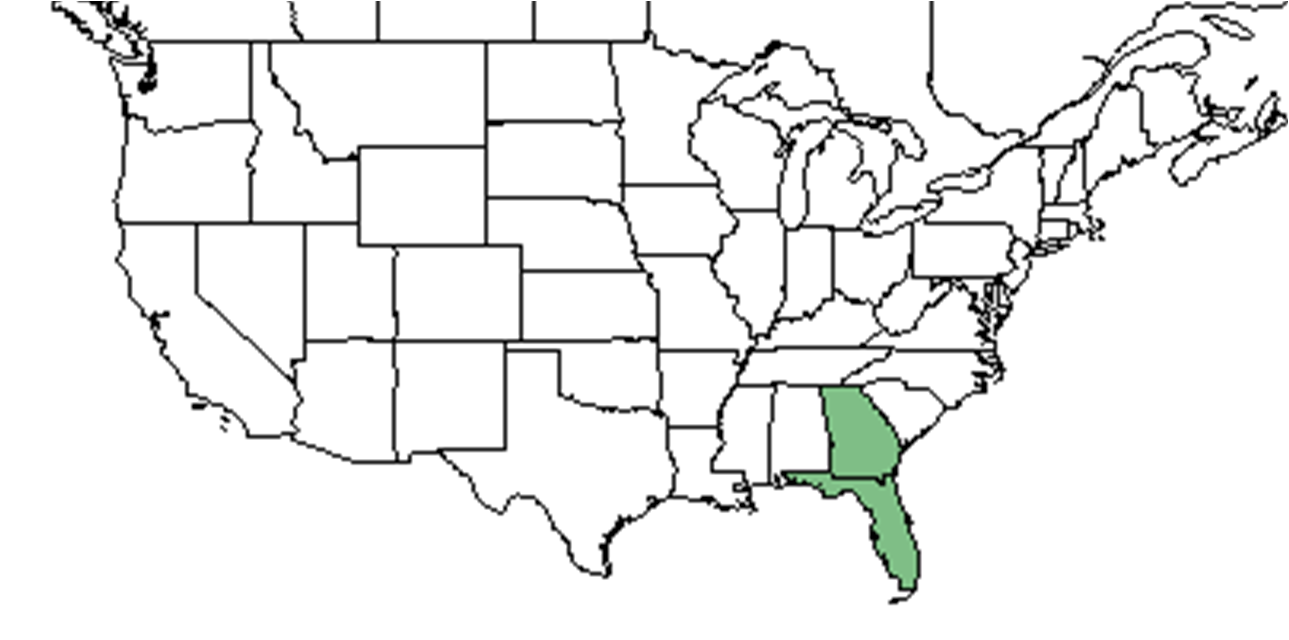Difference between revisions of "Calamintha dentata"
(→Ecology) |
(→Taxonomic notes) |
||
| Line 21: | Line 21: | ||
==Taxonomic notes== | ==Taxonomic notes== | ||
| − | Synonyms: | + | Synonyms: ''Satureja dentata'' (Chapman); ''Clinopodium dentatum'' (Chapman) Kuntze.<ref name="weakley">Weakley, A.S. 2015. Flora of the southern and mid-atlantic states. Working Draft of 21 May 2015. University of North Carolina at Chapel Hill, Chapel Hill, North Carolina.</ref> |
Varieties: none.<ref name="weakley">Weakley, A.S. 2015. Flora of the southern and mid-atlantic states. Working Draft of 21 May 2015. University of North Carolina at Chapel Hill, Chapel Hill, North Carolina.</ref> | Varieties: none.<ref name="weakley">Weakley, A.S. 2015. Flora of the southern and mid-atlantic states. Working Draft of 21 May 2015. University of North Carolina at Chapel Hill, Chapel Hill, North Carolina.</ref> | ||
Revision as of 13:06, 23 June 2021
| Calamintha dentata | |
|---|---|

| |
| Photo taken by Michelle Smith at TNC's Apalachicola Bluffs and Ravines Preserve | |
| Scientific classification | |
| Kingdom: | Plantae |
| Division: | Magnoliophyta - Flowering plants |
| Class: | Magnoliopsida - Dicotyledons |
| Order: | Lamiales |
| Family: | Lamiaceae ⁄ Labiatae |
| Genus: | Calamintha |
| Species: | C. dentata |
| Binomial name | |
| Calamintha dentata (Weath.) Small | |

| |
| Natural range of Calamintha dentata from USDA NRCS Plants Database. | |
Common names: Florida calamint; toothed savory
Contents
Taxonomic notes
Synonyms: Satureja dentata (Chapman); Clinopodium dentatum (Chapman) Kuntze.[1]
Varieties: none.[1]
Description
Distribution
Ecology
Habitat
C. dentata has been found in sandy pine plantations, scrub sand ridges, white cedar swamp, dry pinelands, and turkey oak barrens.[2][3] It is also found in disturbed areas including old fields and along roadsides.[3] Associated species: Eupatorium compositifolium, Haplopappus divaricatus, Polypremum procumbens, Rhynchosia cistifolia, Froelichia floridana, Pityopsis adenolepis, Diodia teres, Rubus cuneifolius, Andropogon virginiana var. glauca, Quercus incana, Pinus, Liatris and Wahlenbergia marginata.[3]
Phenology
C. dentata has been observed flowering from March to October with peak inflorescence in May and June.[4]
Conservation, cultivation, and restoration
Cultural use
Photo Gallery
References and notes
- ↑ 1.0 1.1 Weakley, A.S. 2015. Flora of the southern and mid-atlantic states. Working Draft of 21 May 2015. University of North Carolina at Chapel Hill, Chapel Hill, North Carolina.
- ↑ Murray State University Herbarium accessed using Southeastern Regional Network of Expertise and Collections (SERNEC) data portal. URL: http://sernecportal.org/portal/collections/index.php Last accessed: June 2021. Collectors: John R. Bozeman States and Counties: Florida: Liberty.
- ↑ 3.0 3.1 3.2 University of Florida Herbarium accessed using Southeastern Regional Network of Expertise and Collections (SERNEC) data portal. URL: http://sernecportal.org/portal/collections/index.php Last accessed: June 2021. Collectors: L.E. Arnold, Reed Crook, R.A. Davidson, R.K. Godfrey, S.C. Hood, and R.F. Thorne. States and Counties: Florida: Liberty and Walton.
- ↑ Nelson, G. PanFlora: Plant data for the eastern United States with emphasis on the Southeastern Coastal Plains, Florida, and the Florida Panhandle. www.gilnelson.com/PanFlora/ Accessed: 7 DEC 2016